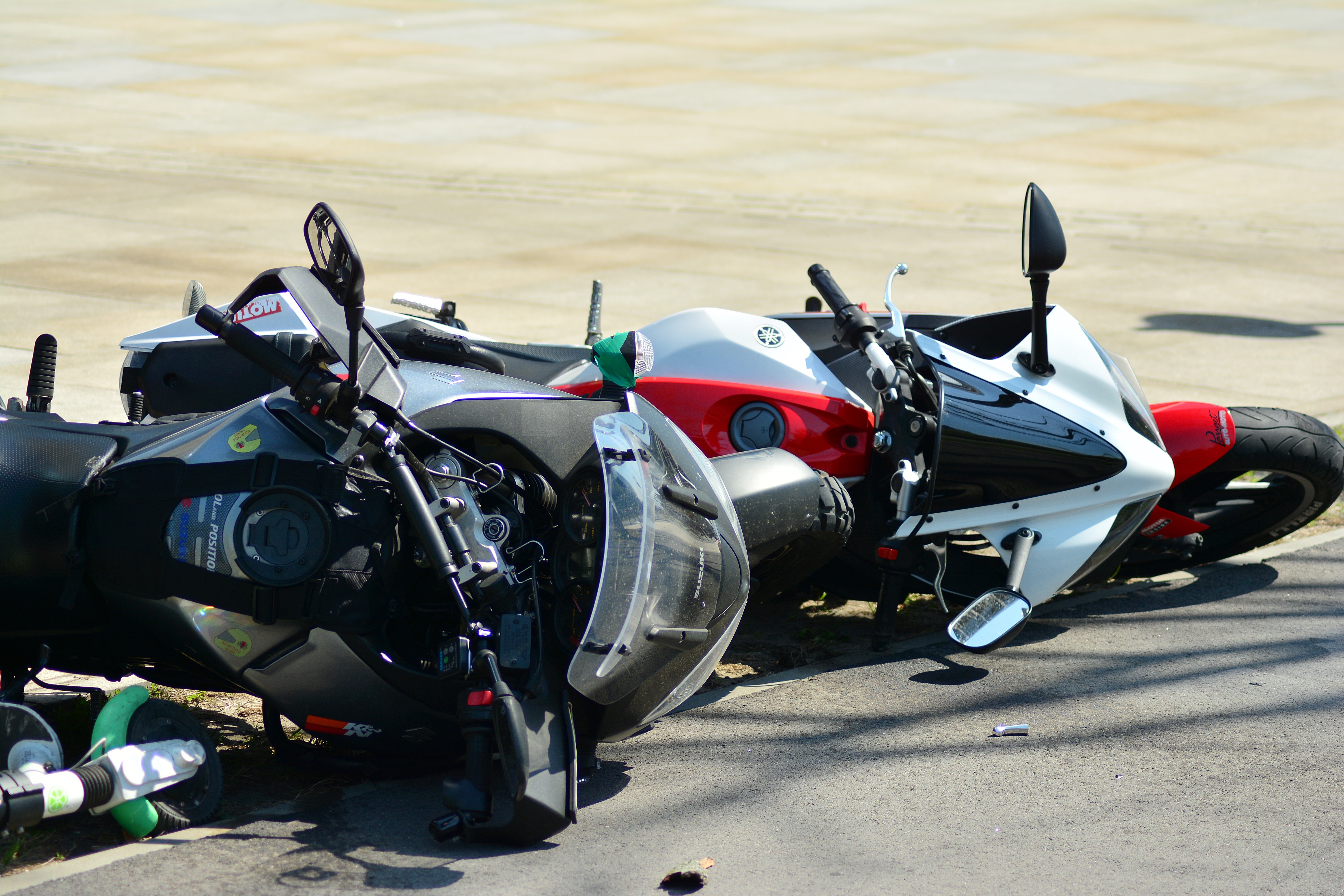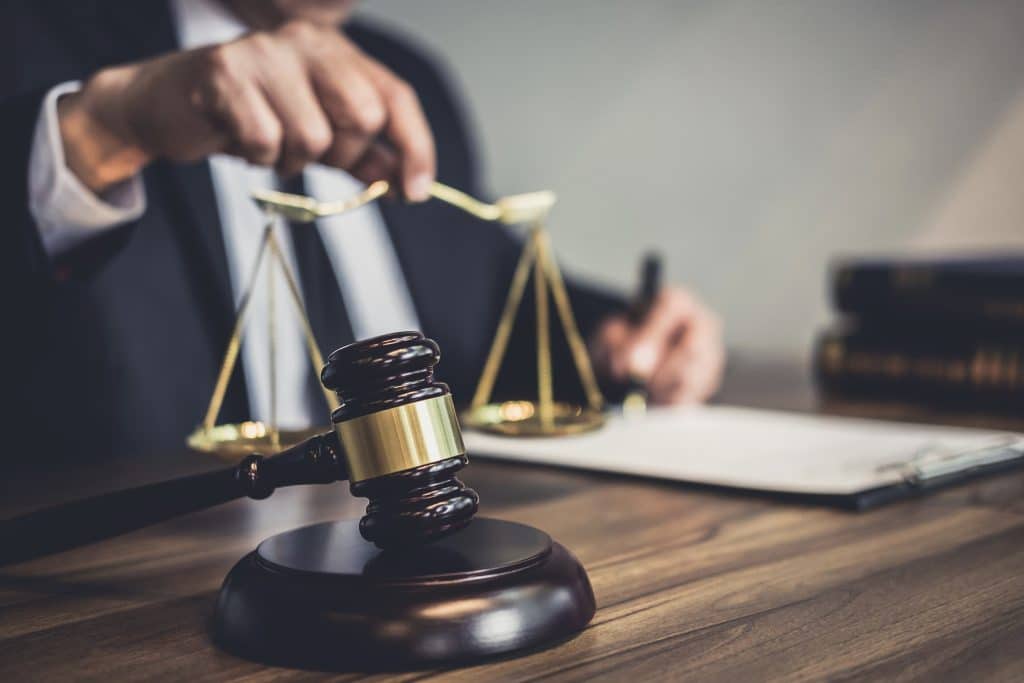If you have been injured while riding as a passenger on a motorcycle, you might ask, “What are the rights of motorcycle passengers after an accident?” Passengers, like drivers, have protections under Pennsylvania law.
Motorcycle passengers often face serious injuries during accidents because they have limited safety measures to shield them. Knowing your rights can help you recover compensation for injuries, medical costs, and other losses.
Do Motorcycle Passengers Have the Right to Compensation?
Passengers injured in motorcycle accidents have the legal right to seek compensation. Pennsylvania law recognizes that you cannot usually be held responsible for the actions that contributed to a crash.
Because passengers rarely share fault for an accident, injured passengers can often recover compensation for medical bills, lost wages, pain and suffering, and other damages.
Who Can Be Held Liable for a Motorcycle Passenger’s Injuries?
The question of liability depends on the circumstances of the accident. Several parties may be responsible for a passenger’s injuries.

- The motorcycle operator
If the person driving the motorcycle acted negligently, they could be held responsible for your injuries. Examples of negligent behavior include speeding, weaving through traffic, or failing to follow traffic laws. Proving their negligence requires showing how their actions caused the accident and led to your injuries. - Another driver
Many motorcycle accidents result from the carelessness of other drivers on the road. A distracted or reckless driver who crashes into the motorcycle may be liable. Evidence such as witness statements, accident reports, and video footage can help identify and prove that another driver was at fault. - A motorcycle manufacturer or repair shop
If the accident occurred due to a defective motorcycle part, the manufacturer or repair shop responsible for installing, maintaining, or producing that part could be held accountable. Brake failures, tire blowouts, or engine malfunctions might contribute to a crash and result in manufacturer liability. - Municipal entities
Poor road conditions, such as large potholes or missing road signs, may also lead to accidents. When this happens, a local government agency responsible for road maintenance could be liable.
Determining fault can require a careful review of the evidence and circumstances. Multiple parties can share liability, which can complicate the claims process.
How Does Insurance Work for Injured Motorcycle Passengers?
Pennsylvania motorcycle insurance and claims laws differ from those for standard vehicles. One key difference is that the state’s no-fault insurance system does not cover motorcycles.
Injured passengers cannot rely on personal injury protection (PIP) coverage to pay for their initial medical costs. Instead, you may be entitled to compensation through several sources of insurance:
- The motorcycle operator’s insurance
The driver’s liability insurance may cover injuries suffered by passengers. Pennsylvania requires motorcycle operators to carry a minimum amount of liability insurance. However, these minimums may not always be enough, especially in cases involving serious injuries. - The at-fault driver’s insurance
If another motorist caused the accident, you may file a claim against their liability insurance. Pennsylvania’s liability insurance requirement for drivers compensates for injuries caused to others in an accident. - Your own insurance policy
If you have motorcycle insurance or other types of insurance that include uninsured/underinsured motorist coverage, you may be able to file a claim under your own policy. This can help when the party responsible does not have sufficient coverage.
Failure to identify all available insurance policies can lead to missed opportunities for compensation. Injured passengers should consider all possible sources when filing their claims.
What Compensation Can Motorcycle Passengers Receive?

Motorcycle passengers injured in an accident can seek compensation for several types of damages.
These include:
- Medical expenses
Compensation may cover hospital stays, surgeries, physical therapy, medication, and any other medical treatments related to injuries from the accident. - Lost wages
If injuries prevent you from working, you can recover the income you have lost. Severe injuries that limit your ability to work in the future may also provide grounds for long-term wage loss compensation. - Pain and suffering
Compensation for physical pain, emotional distress, and reduced quality of life is also available. The severity and long-term effects of your injuries often influence the value of this portion of the claim. - Property damage
If personal items like helmets, phones, or clothing were damaged during the accident, you might recover the costs of repairs or replacements. - Loss of consortium
For passengers whose injuries have affected their relationships with loved ones, additional compensation may be available to address these losses.
The total compensation you can receive depends on the specifics of your injuries, the extent of the at-fault party’s insurance coverage, and state legal guidelines.
What Steps Should Motorcycle Passengers Take After an Accident?
After the initial shock of a motorcycle accident, the steps you take in the following days and weeks are just as important in protecting your rights. These actions can help support your recovery and strengthen your claim.
Follow up on medical care
Continue all recommended medical treatments and attend follow-up appointments. Even if you start to feel better, skipping care could harm your health and weaken your case. Medical records from ongoing treatment provide essential evidence of your injuries.
Document your injuries
Take regular photos of your injuries as they heal. Make notes about how your injuries affect your daily life. Keep track of changes in your ability to work, participate in activities, or carry out basic tasks.
Organize records of expenses and losses
Save receipts and invoices for every expense related to the accident. This includes medical bills, appointment transportation costs, and any necessary home modifications. If the accident caused you to miss work, keep pay stubs or other proof of lost income.
Communicate with insurance companies carefully
Respond to insurance companies in writing when possible, and keep all communication records. Avoid giving recorded statements without legal advice, as insurers might use your words to reduce your claim.
Consult with a lawyer
Reaching out to a lawyer ensures that any deadlines, such as Pennsylvania’s statute of limitations, are met. A lawyer can help you understand your rights and ensure you receive the compensation you deserve.
Taking these steps in the days and weeks after an accident can make a crucial difference in achieving a fair resolution. Staying organized and proactive helps protect your interests throughout the process.
Special Considerations for Passengers in Pennsylvania
Certain legal considerations are unique to Pennsylvania, which may influence your claim as a motorcycle passenger:
- Comparative negligence rules
Pennsylvania follows a modified comparative negligence system. If multiple parties share fault, your compensation may be reduced based on your percentage of fault. However, passengers are rarely, if ever, deemed negligent for motorcycle accidents, which makes this rule less likely to apply in these cases. - No motorcycle helmet law for adults
Pennsylvania law allows riders over 21 with two years of riding experience or completion of a safety course to ride without a helmet.
However, insurance companies may use the lack of a helmet to argue that injuries were worsened by failure to wear proper protective gear.
Being aware of these state-specific factors can help clarify potential hurdles during legal proceedings.
Frequently Asked Questions
- Can passengers sue both the motorcycle operator and another driver?
Yes, passengers can file claims against multiple parties if more than one person contributed to the accident. For example, if the motorcycle operator was speeding and another driver failed to yield, both could share liability. - Are passengers always covered by the motorcycle driver’s insurance?
Not necessarily. The motorcycle driver’s insurance policy may have exclusions or limits that affect coverage for passengers. Reviewing the specific terms of the policy is essential. - What if the motorcycle operator is uninsured?
If the motorcycle operator lacks insurance, injured passengers may need to rely on other insurance sources, such as the at-fault driver’s policy or their own uninsured motorist coverage. - Do passengers need to file claims within a certain time frame?
Yes. Pennsylvania’s statute of limitations for personal injury claims is generally two years from the date of the accident. Waiting too long can result in losing your ability to recover compensation.
Motorcycle passengers injured in accidents can pursue compensation for their injuries and losses. Knowing what the rights of motorcycle passengers after an accident can are help you take the steps needed to rebuild your life.
Working with legal professionals familiar with Pennsylvania laws allows you to seek justice and hold the responsible parties accountable. Ensure you gather all the evidence, identify all liable parties, and act within the legal timeframes to secure the compensation you deserve.
Passenger Liability in Rare Scenarios
Motorcycle passengers are usually not held responsible for accidents, but there are rare situations where their actions might contribute to a crash. Being aware of these scenarios can help clarify when a passenger might share some liability and how that could affect a claim.
One example of passenger liability involves distracting behavior. An excessively loud passenger who constantly shifts around or interferes with the driver’s ability to focus could bear some responsibility for an accident.
Distractions might cause the driver to lose control of the motorcycle or miss potential hazards on the road. Sudden and unnecessary movements could also create dangerous situations.
For instance, if a passenger tries to stand up while the motorcycle is moving or leans excessively in the wrong direction during a turn, the bike’s balance could be affected. This lack of stability might result in the driver losing control or being unable to avoid obstacles.
Passengers who fail to follow the driver’s safety instructions may also contribute to an accident. For example, if the motorcycle operator instructs the passenger to keep their feet on the footrests or hold on during sharp turns, ignoring these directions might increase the chance of tipping or losing balance, especially on slippery or uneven roads.
Another rare scenario involves passengers carrying illegal or dangerous items. If carrying these items distracts the operator or affects the motorcycle’s stability, this could contribute to an accident, raising questions about the passenger’s responsibility.
While uncommon, these situations highlight the importance of safe and cooperative passenger behavior. Demonstrating careful conduct as a passenger can reduce risks and ensure the focus remains on safe driving.
For injured passengers found partially at fault, the modified comparative negligence rule in Pennsylvania might reduce the compensation they can recover. This rule assigns fault percentages to all involved parties and adjusts compensation based on those percentages.
Pribanic & Pribanic Cares

Motorcycle passengers often face serious risks during accidents, but they also have important rights under Pennsylvania law. Knowing who may be held responsible, understanding how insurance coverage applies, and taking the right steps after an accident can make a big difference in securing the compensation you deserve.
If you’ve been injured as a passenger, don’t face the legal process alone. The team at Pribanic & Pribanic is here to help you protect your rights and explore your options. Call us today at 412-672-5444 to discuss your case and take the first step toward recovering the compensation you need.